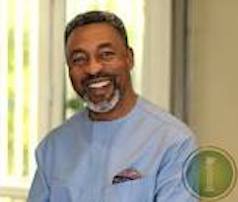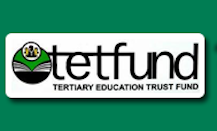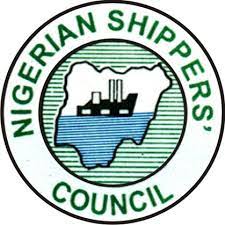Education
NIPR Presidential Aspirant, Neliaku Promises Africa’s First PR University

By Tony Obiechina, Abuja
A leading candidate for the presidency of the Nigerian Institute of Public Relations (NIPR), Dr. Ike Neliaku, has promised to facilitate the establishment of Africa’s first Public Relations University in Nigeria and to initiate the development of a ‘Nigerian Reputation House’ in Abuja if and when elected.
Neliaku, who disclosed this during a chat with Newsmen in Abuja at the weekend, said he would conduct feasibility and viability studies for the eventual establishment of an NIPR-owned PR university and “expend the curriculum of, and transform the current, education advisory board into a Public relations School, to be a finishing school for PR practitioners in Nigeria and a prelude to Public Relations University of Nigeria.
”He also promised to reposition the national secretariat of the Institute “in terms of quality of staff, in terms of where it is located, in terms of activities, in terms of equipping it and in terms of repackaging it, because that is our first foot forward.”
He lamented that the NIPR was currently using a rented facility as its national secretariat, saying, “an institute that is 60 years this year – that is a no-no and it requires somebody that has the capacity and network to be able to do that. God so kind, we were able to secure a land from the Federal Capital Territory, for the national secretariat of the institute. But before that is done, we just must relocate from the plaza where we are to somewhere that is more befitting. This is because public relations is an image-making thing. It is a perception management platform. You can’t build reputation if your reputation has not been sorted out. You can’t make image if you don’t have image yourself.”
As a way of enhancing membership value and professional development, Neliaku, a respected Fellow of the NIPR, said he planned to complete the ‘cadreisation’ process of public relations practice in both the public and private sectors and deepen professional development programmes tailored to enhance skills and competencies of NIPR members.
“I will ensure that the Institute gives value addition to its members, both in terms of programmes and in terms of development. That is very key, because most times, people ask ‘what do we gain?’, he said.
He explained that the process of ‘cadreisation’ was on-going but that “we now have to complete it so that people can actually be happy to work as Public Relations officers in government in in the private sector so that when they retire, they can use it; they are certified by the Institute, they can retire as PR consultants and become PR experts all over the world.”
Neliaku, who served as Special Assistants to several ministers from 1992-2015, further said he would, if elected president of the NIPR, ensure the digitization of the Institute’s operations by establishing an electronic database system to effectively manage information related to NIPR members in teal-time nationwide.
He listed other priority areas to include empowering state chapters for greater viability and sustainability, ensuring regular compliance and strengthening of the rank and status of NIPR Fellows and, initiating and executing special projects for sustainable revenue generation.
Asked to explain his interest in become the President of the NIPR, Neliaku said, “I have always seen myself as a natural phenomenon in public relations. I began my career as far back as 1987 in the University of Jos when I was appointed Public Relations officer for a campus enterprise. At that early age I had not known public relations as an institution, but it’s something that I always enjoyed. And I enjoyed my work and I did so well by the Grace of God. And then, thereafter, I did youth service at the Nigeria Police Force, Imo State Police Command.
“ I served in the Public Relations department under the then Police Public Relations officer who is now retired. So, I did my one-year national service under him. Based on the work that I did, I became the best youth corps member in my local government. I became the best in the state and I became one of the best in the nation. Consequently, I was given a national award. That was during the era President Babangida. And that national award comes with an automatic employment. So, I found myself in the ministry of information as an information officer and then I began my career from there.
“Then I joined the institute because all information officers are expected to be members of NIPR. That’s how I enrolled into the institute as an associate. By 1995, I became a full member of the institute and by 2005, I became a fellow of the institute. And throughout my activities, I have eaten PR, I have spoken PR, I have slept on PR, I have woken up on public relations. So, it became part of me.
“I have also served in many other areas for the institute both at the state, chapter and national levels. In 2021, I was elected into the governing council. That gave me the opportunity to come to the close range with leadership of the institute, challenges of the institute, prospects of the institute, dynamics of the institute and I began to nurture the idea that more needed to be done.
“I had the opportunity of initiating a programme which was accepted by the governing council and that was the citizens summit for national integration for peace and security. Council felt it was a programme to take on and they graciously approved that I should chair the national planning committee for the citizens’ summit. Through that platform, I could see so many things that I thought could be done for the institute if given the opportunity. In terms of programmes, projects and other things, I see that we can do more.
On his chances in the August 24, 2023 NIPR elections, Dr. Neliaku said: “Looking at the dynamics of what is to be done, and knowing that I’m skilled and gifted, in most of those areas, I have shown interest. Most importantly, you cannot lead a people unless they want you to lead them. I have a very vibrant chapter that has called on me to come out. They felt I should be encouraged to run for this office. I must be honest and I must give it to them that they were the ones that started the process. The capacity is there, the understanding of what is required is there, the right emotional intelligence is there. In terms of the network, it is there. In terms of enjoying the respect of your colleagues, it is there. I will be denying the institute the great opportunity to turn things around.
Education
Varsity Don Advocates Establishment of National Bureau for Ethnic Relations, Inter-Group Unity

By David Torough, Abuja
A university scholar, Prof. Uji Wilfred of the Department of History and International Studies, Federal University of Lafia, has called on the Federal Government to establish a National Bureau for Ethnic Relations to strengthen inter-group unity and address the deep-seated ethnic tensions in Nigeria, particularly in the North Central region.
Prof.
Wilfred, in a paper drawing from years of research, argued that the six states of the North Central—Kwara, Niger, Kogi, Benue, Plateau, and Nasarawa share long-standing historical, cultural, and economic ties that have been eroded by arbitrary state boundaries and ethnic politics.According to him, pre-colonial North Central Nigeria was home to a rich mix of ethnic groups—including Nupe, Gwari, Gbagi, Eggon, Igala, Idoma, Jukun, Alago, Tiv, Birom, Tarok, Angas, among others, who coexisted through indigenous peace mechanisms.
These communities, he noted, were amalgamated by British colonial authorities under the Northern Region, first headquartered in Lokoja before being moved to Kaduna.
He stressed that state creation, which was intended to promote minority inclusion, has in some cases fueled exclusionary politics and ethnic tensions. “It is historically misleading,” Wilfred stated, “to regard certain ethnic nationalities as mere tenant settlers in states where they have deep indigenous roots.”
The don warned that such narratives have been exploited by political elites for land grabbing, ethnic cleansing, and violent conflicts, undermining security in the sub-region.
He likened Nigeria’s ethnic question to America’s historic “race question” and urged the adoption of structures similar to the Freedmen’s Bureau, which addressed racial inequality in post-emancipation America through affirmative action and equitable representation.
Wilfred acknowledged the recent creation of the North Central Development Commission by President Bola Tinubu as a step in the right direction, but said its mandate may not be sufficient to address ethnic relations.
He urged the federal government to either expand the commission’s role or create a dedicated Bureau for Ethnic Relations in all six geo-political zones to foster reconciliation, equality, and sustainable development.
Quoting African-American scholar W.E.B. Du Bois, Prof. Wilfred concluded that the challenge of Nigeria in the 21st century is fundamentally one of ethnic relations, which must be addressed with deliberate policies for unity and integration.
Education
TETFund Trains 1,000 Students, 15 Staff in Bauchi Varsity

The Tertiary Education Trust Fund (TETFund) on Monday trained 1,000 students and 15 staff members of Sa’adu Zungur University (SAZU), Bauchi, on career development.
Vice Chancellor of the university, Prof. Fatimah Tahir said that the training reflected the institution’s commitment to preparing students for both academic achievement and professional excellence.
The training had the theme: “Empowering Future Professionals: Mastering Career Tools, Building Networks, and Navigating Opportunities.
’’Tahir said that the workshop focused on building the capacity of nominated Faculty Career Officers and dedicated staff who would serve as faculty anchors for future career programmes.
She commended TETFund for supporting the establishment of the university’s Career Service Centre, saying its intervention was transformational in creating sustainable structures for students and alumni career support.
Also speaking, Dr Wasilu Suleman, Director of Human Resource and Career Development, SAZU, described the initiative as a turning point, which placed career development at the heart of academic excellence.
He emphasised their critical role as mentors, facilitators, connectors, and enablers, in helping students discover purpose, build competence, and compete in the modern labour market.
During the sessions, facilitators guided participants on resume and cover letter writing, internship and volunteer placements, mock interviews, and negotiation strategies.
One of the participants, Malam Adamu Ibrahim, said they were expected to be better equipped to navigate career opportunities, strengthen professional networks, and bridge the gap between academic learning and workplace demands.
| ReplyReply allForwardAdd reaction |
Education
Stakeholders Blame Exams Body, Parents over Mass Failure

Stakeholders in the education sector said, the mass failure in the 2025 West Africa Senior Secondary Certificate Examinations (WASSCE) stem from systemic issues attributed to the examination body, parents and the students
The stakeholders spoke in separate interviews in Abuja on Thursday.
Founder, Exam Ethics Marshall International (EEMI), Ike Onyekere faulted the systemic malpractice and deep-rooted corruption within Nigeria’s examination ecosystem.
The West Africa Examination Council (WAEC) had revealed a sharp decline in performance in the 2025 SSE results compared to the previous year.
Out of a total of 1,969,313 candidates who sat for the examination across 23,554 schools, only 754,545 candidates, representing 38.
32 per cent obtained a minimum of five credits, including English Language and Mathematics.Onyechere decried the 38.32 per cent credit pass rate recorded in this year’s examinations as a “very poor result,”
He, however, noted that the decline was not unexpected due to challenges encountered during the exams.
According to him, there were serious logistical issues during the exams such as power outages, poor supervision, and lack of proper oversight which contributed to students’ poor showing.
“I am not surprised because these logistical issues, as critical as they were, they were ignored during and after the exams.
“No person talked about how those kinds of issues should be addressed in terms of how they affected the performance of those students.
“No person talked about what happened after their papers were collected from them, when they did finish their allotted time and when there was no light.
“So these are some of the questions we need to address,” he said.
Onyechere further criticised students’ growing reliance on “magic centres” and malpractice rings, arguing that many students no longer prepare sincerely for their examinations.
He said most of the students have their mind fixed on magic centres, and other forms of malpractices unfettered and with no consequences.
He accused WAEC and its sister examination body of enabling malpractice by repeatedly failing to name and shame individuals and institutions complicit in exam fraud.
“Every year, WAEC releases statements saying schools were involved in malpractices but where are the names? Who are these schools? Who are the supervisors?
“They recycle these supervisors and protect them,” he said
Citing his experience in the Federal Ministry of Education, he alleged that past attempts to publish and blacklist indicted schools and individuals were stifled.
He praised the Joint Admissions and Matriculation Board (JAMB) for its comparative transparency, saying, “at least, JAMB names CBT centres and schools caught in malpractice and takes them to court.
Onyechere admonished WAEC to take cue from JAMB, in addressing the menace of malpractices.
For meaningful change, he called on WAEC to publish names, sanction schools, blacklist corrupt officials, and take concrete action, not just about release of statements.
He also advised students to reject malpractice, rather, discover and develop their true talents.
Also, Dr Jekayinfa Olatunji, a Fellow with the National Mathematical Centre (NMC), called for a national education emergency roundtable, reforms in exam preparation strategies, and closer monitoring of learning standards at all levels.
Olatunji said until tangible solutions are implemented, the futures of millions of Nigerian students would hang in the balance.
“In 2024, no fewer than 1,805,216 students sat for waec exams out of which 1,332,089 students passed at least 5 subjects including English Language and Mathematics at credit level and above, representing 72.12 per cent pass.
“Ordinarily, the results may seem good, but, what about the remaining 27.88 per cent who didn’t get five credits with English Language and Mathematics?
“The students might not have progressed in their education that year.
“Now, the worst has happened in 2025. Out of 1,969,313 students who sat for WASSCE exams, only 38.32 per cent passed five subjects including English Language and Mathematics.
“The remaining 68.68 per cent didn’t pass five subjects including English Language and Mathematics.
“What this means is that only 754,641 students out of 1,969,313 succeeded in having scores that could earn them tertiary institution admissions,” he said
He advised the education stakeholders to take proactive steps to forestall a repeat of the woeful performance in 2026.
Similarly, a civil servant and a parent, Ijeoma Osita, attributed the poor performance in the examination to both students’ attitudes and the role of parents in fostering academic irresponsibility.
Osita decried increasing culture of academic laziness among students and misplaced priorities by parents.
She further lamented that the quality of learning was fast diminishing due to an over-dependence on technology without critical thinking and originality.
According to her, many students no longer commit themselves to studying or building academic discipline, choosing instead to rely heavily on shortcuts such as Artificial Intelligence (AI), examination malpractice, and plagiarism.
“From what I have observed, many students are not ready to go the extra mile to study, build their capacity and equip themselves academically.
“They rely so much on AI and ‘expo’. Unfortunately parents endorse the negative trend, in having their children pass exams.
“They fail to harness the potential in their children by encouraging them to study harder, or even employ extra hands to coach them in the areas of weakness.
“The parents prefer to hire “machinery,” sometimes to write exams for their children.
“Some will even encourage and finance their children to leave the school, where they have attended for years, to register them in ‘miracle centres’,” she said.
She urged parents to take more responsibility in guiding their children, stressing the importance of discipline, hard work and quality education over superficial success.
| ReplyForwardAdd reaction |



















